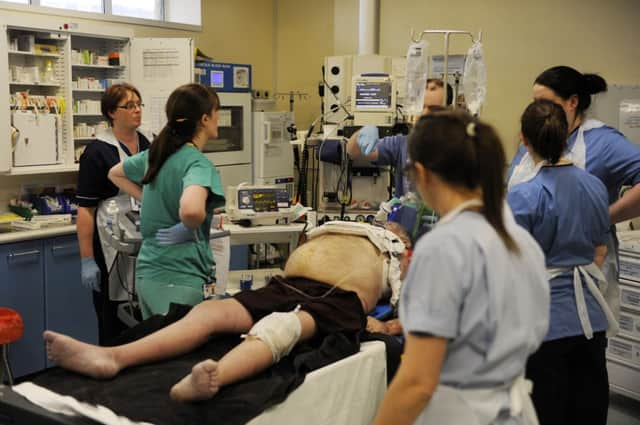‘Swedish’ heart care could save thousands of lives


A study in the Lancet found that between 2004 and 2010, over a third more Britons than Swedes died within a month of having a heart attack.
The research, involving around half a million patients, estimated that more than 11,000 deaths could have been avoided during this seven-year period if UK care standards were as good as those in Sweden.
Advertisement
Hide AdAdvertisement
Hide AdA key reason for the striking difference between the two countries is that British patients are not receiving the best possible treatment, the researchers said.
Professor Harry Hemingway, from University College London, who led the research, said: “Our findings are a cause for concern. The uptake and use of new technologies and effective treatments recommended in guidelines has been far quicker in Sweden.
“This has contributed to large differences in the management and outcomes of patients.”
The researchers assessed the quality of care and outcomes for all heart attack patients treated in hospital in the UK and Sweden. The results showed that 30 days after a heart attack, 10.5 per cent of patients discharged from hospital in the UK were dead compared with 7.6 per cent in Sweden.
At the start of the study, the difference was even more stark, with almost 50 per cent more patients dying in the UK. By 2010, the size of the gap had fallen to 20 per cent.
The scientists estimated that, over the study period, 11,263 British lives could have been saved by matching Swedish standards.
Co-author Dr Tomas Jernberg, from the Karolinska University Hospital in Sweden, said: “Our findings suggest that failure to get the best treatment is one likely reason why short-term survival for heart attack patients is lower in the UK.”
In particular, procedures to open up constricted coronary arteries, such as balloon angioplasty and stent placement, were used more often and earlier in Sweden, where they were applied in 59 per cent of cases compared with 22 per cent in the UK. Recommended drugs such as beta blockers were also less likely to be prescribed to British patients.
Advertisement
Hide AdAdvertisement
Hide AdWriting in a comment piece alongside the study, Keith Fox from Edinburgh University and Chris Gale from Leeds University said the research had drawn attention to the need for further research to compare the effectiveness of heart attack care.
“Efforts to improve cardiovascular outcomes in the UK should, therefore, concentrate on data enhancement through the linkage of electronic health-care records and the early and systematic implementation of evidence-based therapies across the NHS,” they said.
Dr Mike Knapton, associate medical director at the British Heart Foundation, said: “The lesson here for the UK is that we need to be led by the research and introduce pioneering practices quickly and on a large scale.”